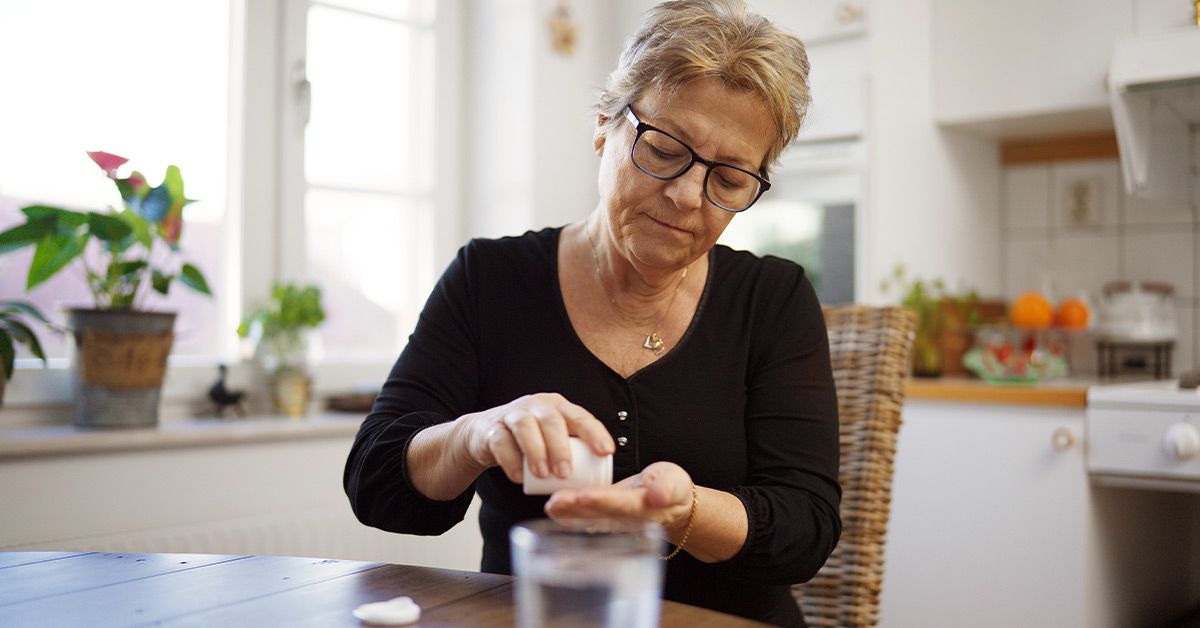Fitness
Statins May Help Prevent Certain Forms of Cancer

- Scientists believe statins, cheap cholesterol-lowering medications, could be used for cancer prevention.
- Statins have anti-inflammatory effects, which could be used to target cancers linked to chronic inflammation.
- The research is still early and has not yet been trialed in humans.
Statins, a cheap, widely-available class of cholesterol-lowering drugs, have been used for decades to prevent and treat cardiovascular disease — could they help prevent cancer too?
The answer to that question lies in the anti-inflammatory effects of statins, which are prescribed to reduce cholesterol, but do more than that. Statins are pleiotropic drugs, meaning that they affect the body in ways beyond their primary indication. It is now widely accepted that they have
Both cardiovascular disease and certain cancers are known to be associated with chronic inflammation, so there is sound reasoning that a statin could affect both of these diseases by modulating the body’s inflammatory response.
In new research,
“For the last decade we have been trying to understand the mechanism that initiates development of what is called chronic inflammation, which is prone to causing cancer in patients … Now we have actually figured out an immune factor cytokine called interleukin 33 (IL-33) to be the initiator of this cancer-causing chronic inflammation,” Shawn Demehri, MD, PhD, Associate Professor of Dermatology at Harvard Medical School and Mass General Hospital, and senior author of the study, told Healthline.
“That’s what led up to this discovery of statin being very effective in preventing the expression of this or blocking the expression of this cytokine,” he added.
The research is still nascent, but is an intriguing proof-of-concept that will warrant more rigorous research. Trials haven’t yet been conducted in humans, but Demehri has his sights set on that for the next phase of his research.
If validated, the findings could open the door to statins one day becoming a cost-effective, safe, and accessible cancer-preventive agent that works by suppressing chronic inflammation.
Demehri’s research rests on two major claims: there is a mechanism that leads to cancer-causing chronic inflammation, and that pitavastatin suppresses this mechanism.
In the study, the team identified a specific immune system signaling pathway that is linked to chronic inflammation, known as Toll-like receptor (TLR)3/4-TBK1-IRF3.
In a healthy individual, one of the functions of this pathway is to induce the production of a protein known as interleukin 33 (IL-33), which is part of the body’s immune system response. IL-33 signals the body to produce other immune system cells when an injury or infection occurs.
However, overproduction of IL-33 can lead to chronic inflammation, which is when an immune-system response continues to linger in the body beyond when it is needed, which leads to a
By suppressing this pathway, researchers knew they could shut down a major driver of chronic inflammation.
They subsequently began testing a battery of FDA-approved drugs in both mouse and in-vitro models to see if anything would work. Out of all the drugs tested, pitavastatin was identified as having an inhibiting effect on the signaling pathway.
“What we found is a very potent inhibitor of this pathway. So, if you’re looking at cancer in the context of chronic inflammation, where this pathway is really active, then blocking this pathway is the main benefit,” said Demehri.
To confirm their findings, the researchers also included an observational study as part of their findings. There they looked at pancreatic cancer outcomes among patients who were prescribed pitavastatin versus a control group who were not.
Patients who took pitavastatin had significantly decreased risk of both chronic pancreatitis and pancreatic cancer risk.
“Statins do reduce inflammation. Some of this is related to their cholesterol-reducing effects. If you’re reducing the amount of cholesterol burden someone has…you’ll reduce inflammation. But statins also do appear to reduce inflammation in some ways independently from their cholesterol-lowering effects,” Matthew Feinstein, MD, Associate Professor of Cardiology at the Northwestern University Feinberg School of Medicine, told Healthline. Feinstein wasn’t affiliated with the research.
Feinstein is a specialist in the field of inflammation and heart disease who recently published an editorial on
He told Healthline that there has been a lot of interest in the anti-inflammatory effects of statins, especially as they pertain to cancer, but that it has been hard to draw hard conclusions.
“In the big picture there’s been a lot of noise regarding statins, whether they’re helpful or harmful in the setting of cancers…There may be some benefit for certain cancer subsets, but that is still far from proven at scale in humans,” he said.
Observational studies have found significantly
However, none of these associations have been rigorously determined in clinical trials. The mechanism through which statins affect cancer outcomes isn’t clear either. In Demehri’s research it is apparently due to its anti-inflammatory effects, but this may not be the case for other forms of cancer.
Feinstein is cautiously optimistic about the research, but cautions that it is still very early to know if the promise of statins in cancer prevention will be borne out.
“I think the general inflammation-reducing properties are reasonably well supported systemically. But there are tons of questions on the actual chemo prevention arm of this,” he said.
Researchers believe that statins could play a role in preventing certain forms of cancer associated with chronic inflammation.
Statins are widely-used cholesterol-lowering medications that have documented anti-inflammatory properties.
Despite the promising findings, the research is still very early and needs to undergo trials in humans to be validated.










